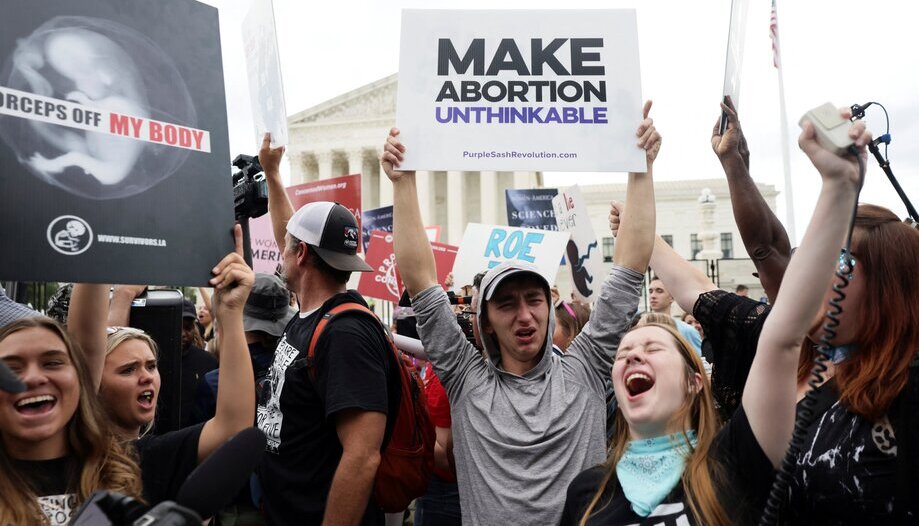In a landmark decision, the U.S. Supreme Court today overturned the judgment of the U.S. Supreme Court that Roe v Wade 1973 that established legal protections for performing abortions at the federal level, which was interpreted as a "constitutional right".
Today, six of the nine justices who make up the U.S. Supreme Court ruled that the The U.S. Constitution does not grant or contain a right to abortion.
Therefore, the Roe v. Wade ruling is vacated as of today. This verdict is part of the Dobss v. Jackson Women's Health Organization case, which addressed whether or not a Mississippi state law prohibiting pregnancy after fifteen weeks was constitutional.
From now on, "The power to regulate abortion is returned to the people and their elected representatives," the ruling states. This ruling will be one of the most important in several decades as the regulation of abortion will be left in the hands of each of the fifty states of the American Union. Thus, more than half of them are expected to implement restrictions or even ban abortion. Many of them already do so.
The arguments presented today and endorsed by six of nine justices in the 213-page ruling state that the Constitution does not establish abortion as a right.
The Constitution does not give anyone the right to destroy one life in the interest of another.
Such a prerogative, say the judges, is neither part of nor supported by the history and tradition of the American nation. The pro-abortion laws implemented at the federal level in recent decades have upset the balance between the interests of the woman seeking an abortion and the interests of the unborn human being.
Abortion essentially destroys a potential life, the opinion states. However, the Constitution does not give anyone the right to undermine or destroy one life in the interest of another. Roe v Wade and other laws, the justices say, disregarded the rights of an unborn life for fifty years.
Justice Samuel Alito writes in his opinion that abortion represents a moral issue that provokes divergent opinions, for example, when it initiates a human life. In a democracy, such sensitive issues "should be resolved by the citizens of each state. Therefore, it is time to return this matter to the people and their elected representatives," the magistrate states.
For those in favor of abortion, including U.S. President Joe Biden, this ruling was a "tragic mistake" and today was a somber day in U.S. history.
The President indicated that he will use everything in his power to defend "a woman's right to decide", including making birth control drugs available to women and promoting the transfer of women who wish to have an abortion to states where they can have the procedure performed.
A historic day
For those who have defended life from the moment Roe V Wade was passed in 1973, today is a day of joy, a historic day, as Jose Gomez, Archbishop of Los Angeles and President of the U.S. Conference of Catholic Bishops, points out: "For fifty years an unjust law was imposed. America was founded on the fundamental truth that all men and women are created equal, with God-given rights. However, that principle was seriously undermined by Roe v. Wade, which legalized the destruction of a human life".
The U.S. prelates recognize the work of thousands of people and pro-life organizations because it is thanks to their tireless work in favor of the rights of the unborn that it was possible to reach this ruling. These groups, according to the Episcopal Conference, should be considered as part of the social movements that have fought for civil rights in our nation.
Given that this verdict will provoke violent reactions, both President Biden and the U.S. Bishops have called for peace.
To take this post-Roe v. Wade time as an opportunity to heal wounds and repair social divisions through dialogue and reflection. The outlook indicates that this will not be an easy task.









